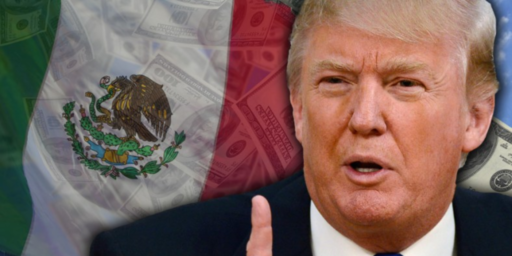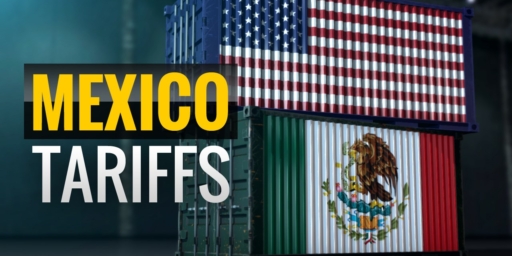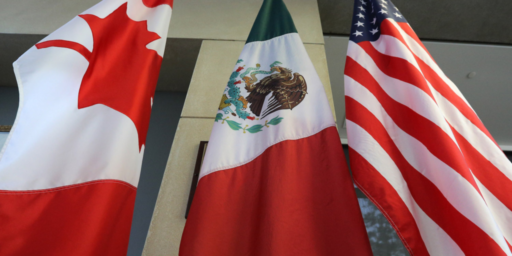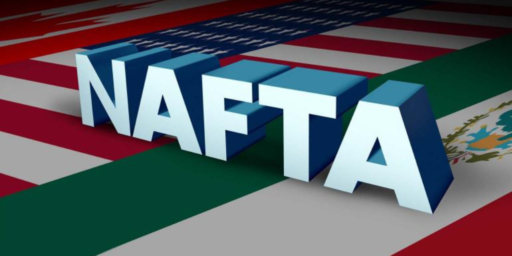After NAFTA
Thomas Friedman [RSS] has made his first trip to Mexico since 1996 worthwhile, getting at least two columns out of it. At first glance, it looked as if he’d actually just gotten one column out of it, with this a virtual re-run of the first:
Because it happened so peacefully, it’s easy to forget that Mexico in one decade has gone through two remarkable revolutions. One of the oldest one-party governments in the world was eased out with ballots, not bullets, and a poor developing country lowered its tariff barriers and became America’s second-largest trading partner. *** But unless they are followed up now by a third revolution — a reform revolution — that mobilizes and upgrades the skills of the whole society, Mexico will not stay competitive, and people here know it.
He eventually goes on to propose–or, actually, relay–a rather bold plan for that third revolution:
[I]t’s time to start thinking out of the box — or maybe into a bigger box. “This situation doesn’t have to end in crisis, but it will if Mexico, the U.S. and Canada fail to act,” says Robert Pastor, director of the Center for North American Studies at American University and author of “Toward a North American Community.”
Mr. Pastor has proposed a way out — deeper integration. Canada, Mexico and America have to go beyond Nafta and start building “a North American Community” — which addresses continental issues, from transportation to terrorism, in a wider framework. Among other things, Mr. Pastor proposes that the U.S., Canada and Mexico establish a North America investment fund, which, over 10 years, will invest in roads, telecommunications and post-secondary education in Mexico. (Amazingly, there is no highway today that runs directly from resource-rich southern Mexico to the U.S. border. You have to go through clogged Mexico City.) When the European Union brought in the poorer countries of Spain, Portugal, Greece and Ireland, it didn’t just tell them, “O.K., now you’re in our free-trade zone, let the market rip.” The E.U. invested big, big money in roads and education in the four new states and narrowed their income gap with the rest of Europe, giving their workers an incentive to stay home.
“The United States and Canada should only contribute to such a fund, though, if Mexico contributes an equal amount through new taxes and implements the reforms that will make its economy more competitive,” said Mr. Pastor. “If the U.S. shaped this approach with Mexico as part of building a larger community, it could break the Mexican stalemate on reforms. Without reform, Mexico will never develop to the next stage, and without Mexican development, no U.S. immigration plan will stem the flow. The only effective migration strategy is one that narrows the income gap. This is also good business, because as Mexico grows, it buys 80 cents of every dollar of its imports from the U.S. — unlike China.”
Frankly, I wish we’d fix our own roads first–the ones around here are pretty lousy. Still, this may be a worthwhile investment. Mexico’s success is vital to our economy, not only because they’re a major trading partner but because, the worse the Mexican economy is, the more illegal immigration we’re faced with.





